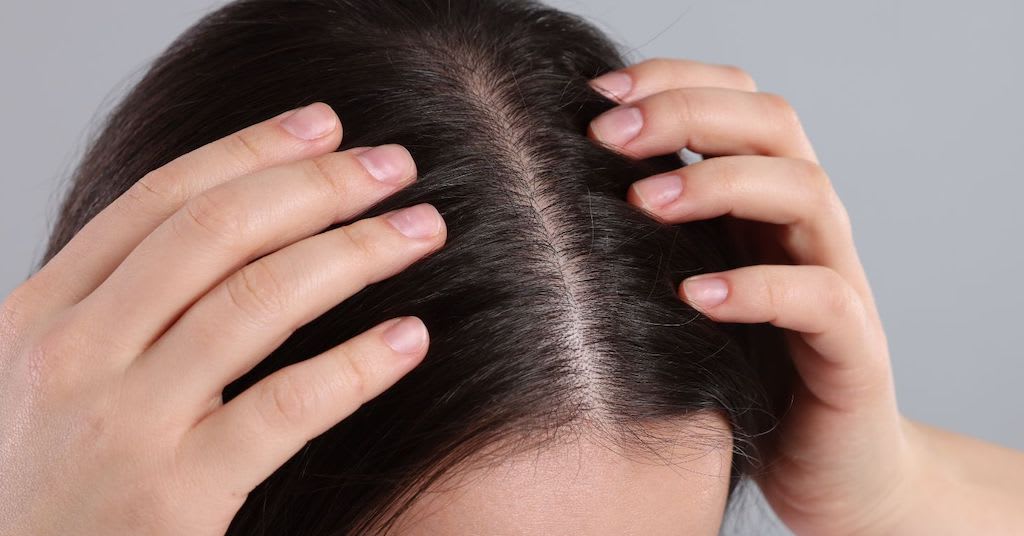Many of us obsess over finding the perfect shampoo and conditioner for shiny, healthy hair. While high-quality hair products certainly play a role, the real secret to great hair is a healthy scalp. Your scalp is the foundation for hair growth, so making scalp care a priority is essential for great hair. Resources like MailMyMeds can help you explore effective ways to support scalp health as part of your overall routine.
In this article, we'll discuss the essentials of proper scalp care and maintenance. You'll learn why scalp health matters and how to incorporate scalp care into your routine.
Why Is Scalp Care Important?

Your scalp health plays a big role in hair health. When your scalp isn’t in great condition — whether it’s due to dryness, irritation, or specific scalp conditions — it can weaken your hair at its roots. 1
The link between scalp health and hair health comes down to something called oxidative stress. This happens when your scalp’s environment is out of balance, damaging the soft, forming hair before it even emerges. The outer layer of your hair, called the cuticle, gets weakened by this stress. This leaves your hair more prone to breakage, dullness, and a rough texture, even from everyday activities like brushing, washing, and styling. Essentially, an unhealthy scalp can fast-track your hair to look older and more worn out than it should. 1
Here’s the exciting part: the damage isn’t permanent. Research shows that improving scalp health can directly improve the quality of your hair. In one study, people with scalp issues followed a scalp care routine for 16 weeks. The result? The new hair that grew during this time had smoother, stronger cuticles and was less likely to break or show signs of damage. 1
How to Incorporate Scalp Care Into Your Routine

Shampoo Correctly
When it comes to shampooing, there's no one-size-fits-all approach. How frequently you need to wash your hair depends largely on your hair type:
- Straight, fine hair may need a shampoo daily to control oil production.
- Thick, curly hair can often go several days between washes without hair getting greasy. 2
Regardless of your hair type, it's a good idea to at least wet your hair every few days. Doing so helps rinse away styling products, pollutants, and dirt that accumulate on the scalp. 2
When you do lather up, focus your scrubbing efforts on the scalp rather than the hair lengths. Gently massaging the scalp will lift dirt and oil without stripping needed moisture from your hair. Aggressively rubbing the ends can cause damage over time. 2
Avoid Harmful Hair Styles
Certain hairstyles like cornrows, box braids, and tight ponytails or buns require constant tension on the scalp to stay in place. This persistent pulling can contribute to a condition called traction alopecia; a form of hair loss caused by damage to the follicles from chronic tension. 2
Traction alopecia typically starts around the hairline, as this area bears the brunt of the strain. Without intervention, the condition can progress to overall thinning or patchy bald spots anywhere that experiences frequent pulling. While the early stages are usually reversible with appropriate scalp care, repeated traction can destroy follicles and lead to permanent baldness. 2
If you're noticing hair thinning or bald spots due to styling practices, consider seeking advice from a doctor about hair loss treatments to address the issue.
Managing Oily Hair
If you find yourself constantly battling greasy hair no matter how often you shampoo, you likely have an oily scalp. This condition is due to your sebaceous glands working overtime, producing excess sebum. Without regular washing, all that sebum builds up on the scalp and hair strands. 2
Several factors can trigger excess sebum production:
- Hormonal changes often throw sebaceous glands out of whack, especially androgen fluctuations.
- Conditions like seborrhea directly cause the scalp to pump out too much oil. This oil buildup can feed acne-causing bacteria and yeasts, worsening conditions like acne and seborrheic dermatitis. 2
If you're battling oily hair, consider the following scalp care tips:
- Adjust your hair washing routine: For some, washing more frequently can help keep oil buildup at bay.
- Avoid adding more oils to your scalp: This can exacerbate the situation and even attract yeast, worsening the issue.
- Consult a doctor: In more severe cases, seeking advice from a healthcare professional might be necessary. 2
Conclusion
By making scalp care a priority, you're investing in the foundation of your hair's health. Whether it's adjusting your washing techniques or being mindful of the products you use, these simple adjustments can have a big impact on your hair. For more tips and insights, explore our hair loss blog to learn how proper scalp care can lead to significant improvements in your hair's overall condition.
The content in this article is intended for informational purposes only. This website does not provide medical advice. In all circumstances, you should always seek the advice of your physician and/or other qualified health professionals(s) for drug, medical conditions, or treatment advice. The content provided on this website is not a substitute for professional medical advice, diagnosis, or treatment.






